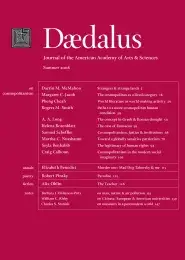Paths to a more cosmopolitan human condition
To be good citizens of the World and the Nation we live in, yet to have especial fellowship with the descendants of our ancestors, is perfectly consistent with true patriotism and universal philanthropy.
–Constitution and Rules of the Welsh Society of Pennsylvania Philadelphia, 17991
The reassuring assertion of the Pennsylvania Welsh at the end of the eighteenth century that their Society was “perfectly consistent with true patriotism and universal philanthropy” may well have been an effort to fend off arguments of the sort John Quincy Adams would make in 1818–that being “American” meant casting “off the European skin, never to resume it.”2 Then, and perhaps even more today, many have doubted that people can simultaneously embrace their ethnic identity, citizenship in a nation-state, and some sense of world citizenship in ways that are perfectly consistent, making themselves good citizens in all three regards.
In most places today, the appeals of ethnicity or nationalism or other more particular allegiances seem far more potent than any ideal of cosmopolitan citizenship. Many of those who do endorse cosmopolitan commitments, in turn, criticize both strong particularistic attachments to “the descendants of our ancestors” and local or national patriotism. Contemporary political theorists seek to weigh the merits of claims for these and other identities, portraying them as inescapably in at least partial conflict. Likewise, many contemporary political struggles are over which allegiances will prevail in practice.
This essay is not a contribution to philosophic debates over the propriety of aspiring to be “good citizens of the World” or over what such cosmopolitan citizenship ought to entail institutionally. It is also not an effort to show that ethnic attachments, national patriotism, and world citizenship are in fact wholly consistent. I simply presume that people should share the sentiments of the Pennsylvania Welsh: it is, ceteris paribus, desirable for people to try to be good global citizens as well as good national patriots and good members of other communities, including those defined by shared ancestry.
. . .
